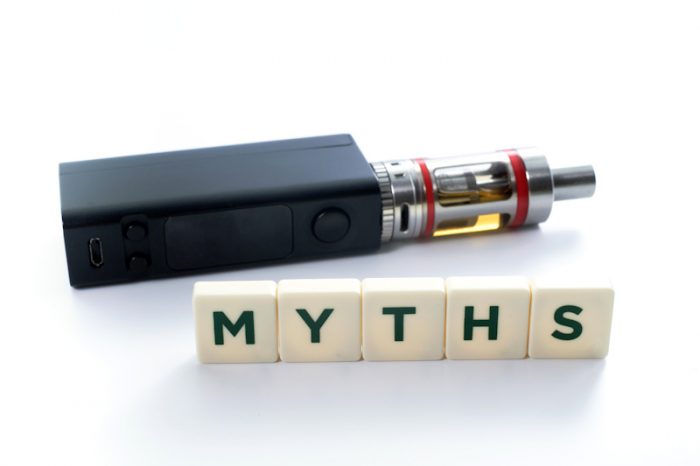UKHSA Tackles Vaping and e Liquid Myths
In 2015, Public Health England addressed a number of myths surrounding vaping. Now, following Britain leaving the European Union, the section of Public Health England responsible for electronic cigarettes has been moved to the UK Health Security Agency. The Agency has recently revisited the topic to clean up the myths around e-cigarettes.
 “E-cigarettes do seem to be a bit like Marmite,” says the UK Health Security Agency, “courting controversy among the public and media alike. Not surprisingly, there are lots of inaccuracies and misconceptions about e-cigarettes and vaping.”
“E-cigarettes do seem to be a bit like Marmite,” says the UK Health Security Agency, “courting controversy among the public and media alike. Not surprisingly, there are lots of inaccuracies and misconceptions about e-cigarettes and vaping.”
The Agency points out that what it goes on to say is supported by Cancer Research UK, Action on Smoking and Health, the Royal College of Physicians, and the British Medical Association.
Does vaping give you popcorn lung?
The short answer is ‘no’.
Popcorn lung (bronchiolitis obliterans) is the name given to a disease that was contracted by workers in a popcorn factory. The chemical that gives food a buttery flavour, diacetyl, contaminated the air and they breathed it in.
The Agency says: “Diacetyl is banned as an ingredient from e-cigarettes and e-liquids in the UK. It had been detected in some e-liquid flavourings in the past, but at levels hundreds of times lower than in cigarette smoke. Even at these levels, smoking is not a major risk factor for this rare disease.”
Are e-cigarettes regulated?
Some claim that vaping isn’t regulated and that we don’t know what’s in e-liquid.
The UK Health Security Agency states: “The UK has some of the strictest regulation for e-cigarettes in the world. Under the Tobacco and Related Products Regulations, e-cigarette products are subject to minimum standards of quality and safety, as well as packaging and labelling requirements to provide consumers with the information they need to make informed choices.”
Are e-cigarettes harmful because they contain nicotine?
An amazing 40% of smokers and ex-smokers think that it is the nicotine in cigarettes that causes tobacco related disease.
The Agency says: “Evidence shows nicotine actually carries minimal risk of harm to health. Although nicotine is the reason people become addicted to smoking, it is the thousands of other chemicals contained in cigarette smoke that causes almost all of the harm. E-cigarette vapour does not contain tar or carbon monoxide, two of the most harmful elements in tobacco smoke. It does contain some chemicals also found in tobacco smoke, but at much lower levels.”
Does secondhand vape pose a danger?
Most experts agree that exposure to secondhand cigarette smoke is harmful.
From over ten years of research studies, the Agency concludes: “there have been no identified health risks of passive vaping to the health of bystanders.”
Does vaping cause young people to smoke?
Repeated studies show there is no risk of this happening in the United Kingdom.
The UK Health Security Agency explains: “Our latest report found no evidence so far to support the concern that e-cigarettes are a route into smoking among young people. UK surveys show that young people are experimenting with e-cigarettes, but regular use is rare and confined almost entirely to those who already smoke.”
Are ecigs a tobacco company ploy to get people smoking?
“There is currently no evidence to suggest that e-cigarettes are encouraging people to continue smoking – the picture in the UK suggests the opposite. The proportion of e-cigarette users who are ex-smokers has been increasing over recent years,” the Agency states.
It adds that as vaping has increased in the UK, we’ve seen accelerated rated of people stopping smoking.
Do electronic cigarettes help you quit smoking?
Yes.
“A major UK NIHR funded clinical trial … found that in Local Stop Smoking Services, a standard e-cigarette was twice as effective at helping smokers to quit compared with the quitters’ choice of combination nicotine replacement therapy,” the UK Health Security Agency states.
After over a decade of vape products being sold, the evidence remains very positive and it is wonderful news that the UK Health Security Agency is as supportive now as Public Health England used to be.

Comments are closed here.